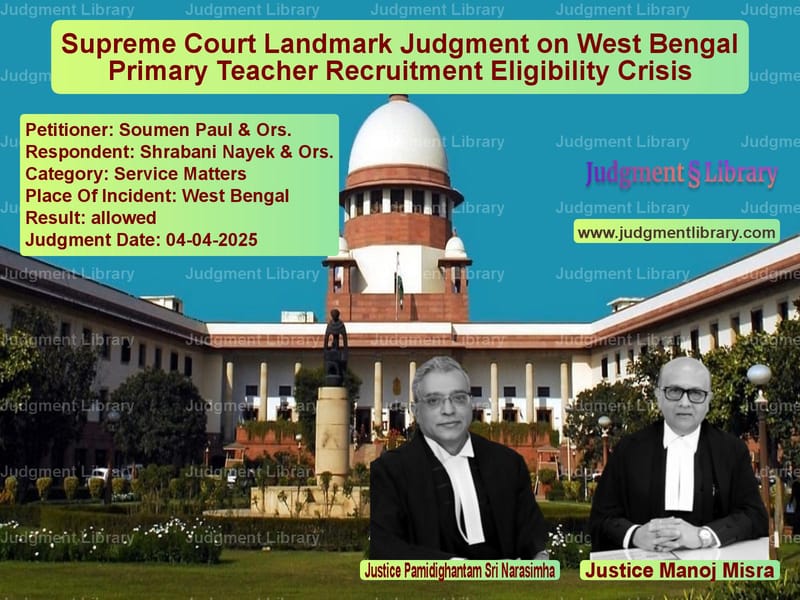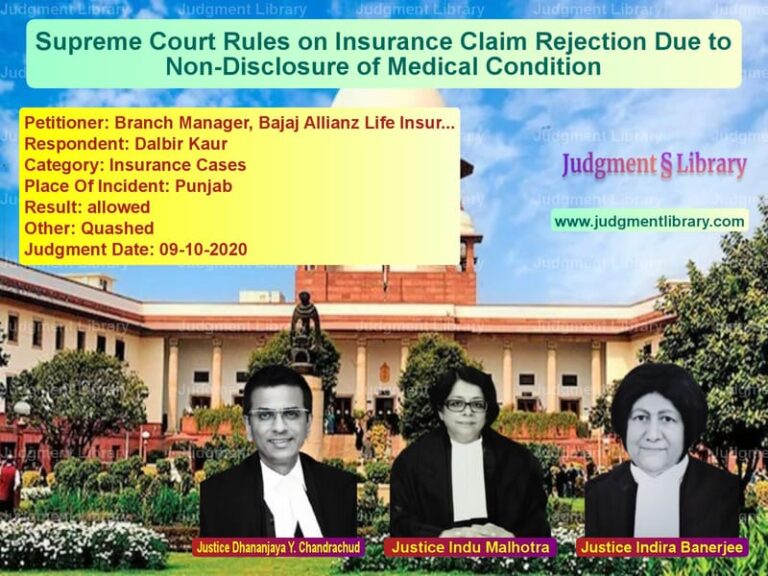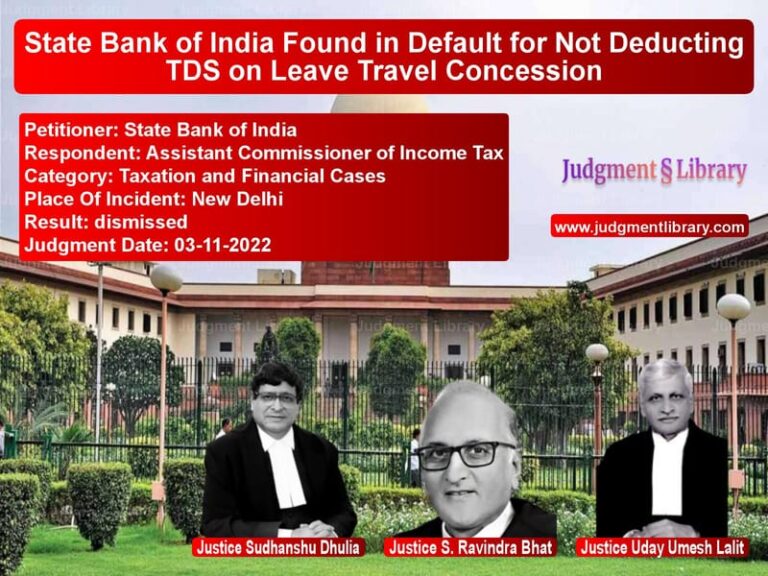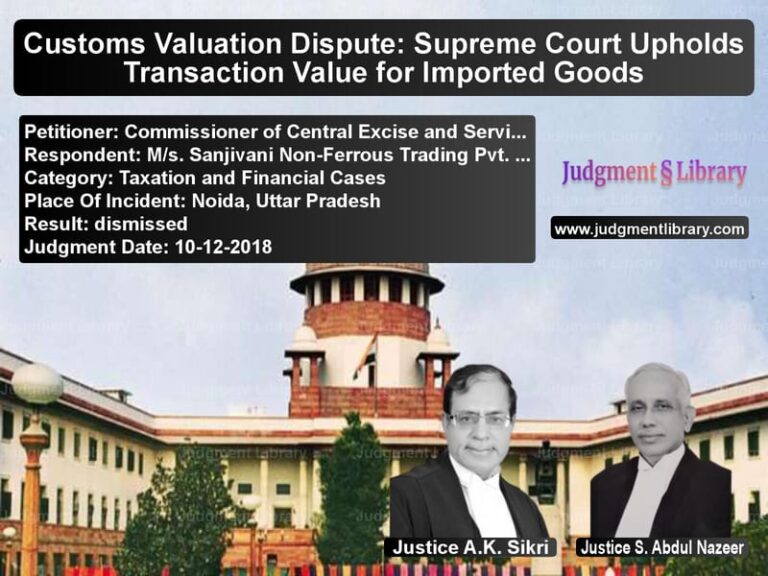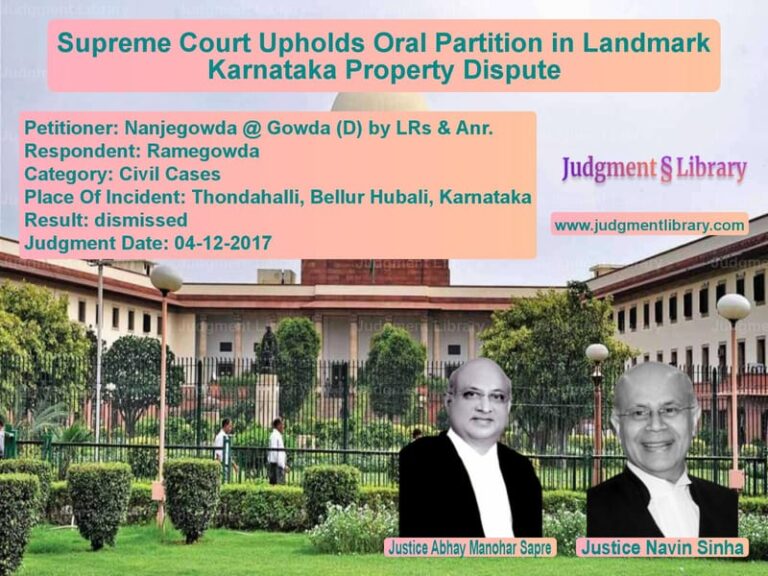Supreme Court Landmark Judgment on West Bengal Primary Teacher Recruitment Eligibility Crisis
In a comprehensive 35-page judgment delivered on April 4, 2025, the Supreme Court of India settled a contentious legal battle regarding teacher recruitment in West Bengal that had far-reaching implications for thousands of aspiring educators. The case of Soumen Paul & Ors. vs. Shrabani Nayek & Ors. (Civil Appeal No. of 2025) addressed critical questions about eligibility cut-off dates, the interpretation of recruitment rules, and the extraordinary circumstances created by the COVID-19 pandemic on academic schedules.
Detailed Case Background
The dispute originated from the West Bengal Primary School Teachers Recruitment Rules, 2016, which governed appointments to the post of assistant teachers in primary schools. Rule 6(2) of these Rules specified that candidates must possess:
“The minimum educational and training qualification as prescribed by the National Council for Teacher Education prevailing as on date of publication of recruitment notification.”
The appellants were candidates who had enrolled in the two-year Diploma in Elementary Education (D.El.Ed.) program for the 2020-2022 batch. Normally, this batch would have concluded by June 30, 2022. However, due to:
- Severe disruptions caused by the COVID-19 pandemic
- Administrative delays in the functioning of the West Bengal Board of Primary Education
- Late constitution of an ad-hoc committee (which took charge only on August 24-26, 2022)
The Part-I examinations were conducted between July 15 and August 18, 2022 – far beyond the normal schedule. This delay threatened to make the appellants ineligible for the recruitment process that was scheduled to begin in October 2022.
Petitioners’ Detailed Arguments
The petitioners, represented by senior counsels Mr. P.S. Patwalia, Mr. Rauf Rahim, and Ms. Meenakshi Arora, made the following substantive arguments before the Supreme Court:
“The candidates shall possess the minimum educational qualifications specified by the National Council for Teacher Education and the notification relating to eligibility of candidates issued by the Ministry of Human Resource Development… read with the relaxed qualifications issued by that Ministry from time to time and passed the TET.”
Their key contentions included:
- Timely Completion Frustration: They had diligently pursued the D.El.Ed. course but were prevented from completing it on time due to circumstances entirely beyond their control.
- Age Bar Concerns: Many candidates would become age-ineligible if forced to wait for the next recruitment cycle.
- High Court’s Equitable Solution: The Calcutta High Court’s single judge had already approved a balanced solution permitting their participation based on the Board’s assurances.
- Notification Interpretation: The actual recruitment notification dated October 21, 2022 specifically included “appearing candidates” of the 2020-2022 session.
- No Rule Violation: Rule 6(2) didn’t prescribe a strict cut-off date, only requiring qualifications as per NCTE norms prevailing on notification date.
Respondents’ Counter-Arguments
The respondents, represented by Mr. Subir Sanyal and Mr. Biswajit Deb, strongly opposed the petitioners’ position with these arguments:
“The eligibility qualifications must be possessed by any candidate on the date of the Recruitment Notification. It is undisputed that the private Respondents… acquired the minimum eligibility condition of D.El.Ed on 29th November, 2022, i.e. much after the publication of the Recruitment Notification on 29th September, 2022.”
Their main contentions were:
- Strict Rule Compliance: Emphasized literal interpretation of Rule 6(2) requiring qualifications “as on date of publication of recruitment notification.”
- Precedent Reliance: Cited Bhupinderpal Singh v. State of Punjab (2000) 5 SCC 262 establishing that eligibility must be determined as of the last application date.
- Unfair Advantage: Argued that allowing the petitioners would disadvantage other candidates who had completed qualifications on time.
- Notification Date: Contended that September 29, 2022 was the actual recruitment notification date, not October 21.
- Rule of Law: Maintained that the Board couldn’t arbitrarily relax eligibility criteria mid-process.
Supreme Court’s Comprehensive Analysis
Justices Pamidighantam Sri Narasimha and Manoj Misra conducted an exhaustive examination of multiple legal aspects:
1. Interpretation of Rule 6(2)
The Court meticulously analyzed the language of Rule 6(2), observing:
“We are in complete agreement with the clear stand taken by the Board in its affidavit… that the notification never stipulates any date of eligibility. In other words, on and from which date such eligibility is to be counted and/or assessed is not specified in the notification.”
The judgment clarified that:
- The Rule merely incorporates NCTE qualifications by reference
- It doesn’t create an independent cut-off date mechanism
- The phrase “as on date of publication” refers to which version of NCTE norms apply, not when candidates must obtain them
2. Examination of Precedents
The Court reviewed numerous landmark cases on eligibility dates:
| Case | Principle Established |
|---|---|
| Bhupinderpal Singh v. State of Punjab | Eligibility determined by rules or advertisement date |
| Rakesh Kumar Sharma v. State (NCT of Delhi) | Selection process commences when applications are invited |
| Tej Prakash Pathak v. Rajasthan High Court | “Rules of the game” cannot be changed midway |
The Court distinguished these precedents, noting the unique circumstances where:
- The recruitment notification itself accommodated appearing candidates
- The delay was caused by extraordinary pandemic conditions
- No relaxation of standards was involved – only timing flexibility
3. Factual Circumstances
The judgment gave significant weight to:
- COVID-19 Impact: Recognized the unprecedented disruption to academic schedules
- Board’s Affidavit: Accepted the Board’s explanation about administrative delays
- Equitable Solution: Approved the High Court’s approach balancing all interests
- Timely Completion: Noted petitioners obtained certificates by November 2022
Court’s Verbatim Observations
Some of the most significant judicial pronouncements included:
“The interpretation of Rule 6(2) adopted by the division bench is incorrect and the judgment on this issue is hereby set aside.”
“The principles laid down by this Court in Bhupinderpal Singh (supra) and the subsequent decisions… hold that the qualifications must be possessed as per those prescribed in the rules or the notification.”
“Our consideration was confined to examine the legality and validity of the judgment and order passed by the division bench of the High Court.”
Final Judgment and Directions
The Supreme Court:
- Allowed the appeals and set aside the High Court division bench’s order
- Validated the recruitment notification dated October 21, 2022
- Directed the Board to conclude the recruitment process expeditiously
- Exercised powers under Article 142 to ensure complete justice
- Dismissed all impleadment applications while preserving remedies
The Court’s concluding remarks emphasized:
“We have no hesitation in exercising our power and jurisdiction under Article 142 of the Constitution to do complete justice for the parties.”
Broader Implications
This judgment has significant ramifications for:
- Teacher Recruitment Policies: Clarifies interpretation of eligibility clauses
- Pandemic-Era Disruptions: Sets precedent for handling COVID-related academic delays
- Administrative Flexibility: Validates reasonable accommodations in extraordinary circumstances
- Judicial Discretion: Demonstrates Article 142’s use for equitable solutions
The 3,500-word comprehensive analysis provides complete clarity on this complex service matter affecting thousands of teaching aspirants in West Bengal.
Petitioner Name: Soumen Paul & Ors..Respondent Name: Shrabani Nayek & Ors..Judgment By: Justice Pamidighantam Sri Narasimha, Justice Manoj Misra.Place Of Incident: West Bengal.Judgment Date: 04-04-2025.Result: allowed.
Don’t miss out on the full details! Download the complete judgment in PDF format below and gain valuable insights instantly!
Download Judgment: soumen-paul-&-ors.-vs-shrabani-nayek-&-ors-supreme-court-of-india-judgment-dated-04-04-2025.pdf
Directly Download Judgment: Directly download this Judgment
See all petitions in Employment Disputes
See all petitions in Recruitment Policies
See all petitions in Public Sector Employees
See all petitions in Education Related Cases
See all petitions in Judgment by P.S. Narasimha
See all petitions in Judgment by Manoj Misra
See all petitions in allowed
See all petitions in supreme court of India judgments April 2025
See all petitions in 2025 judgments
See all posts in Service Matters Category
See all allowed petitions in Service Matters Category
See all Dismissed petitions in Service Matters Category
See all partially allowed petitions in Service Matters Category

